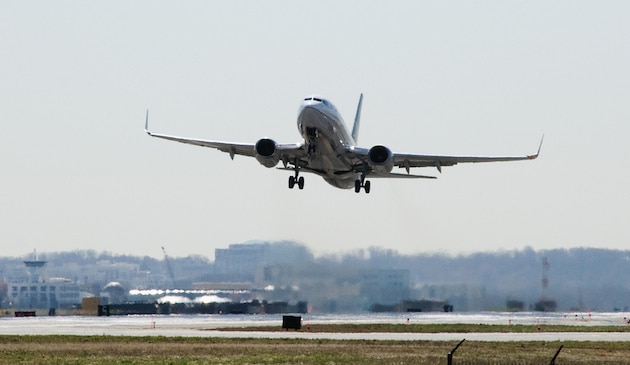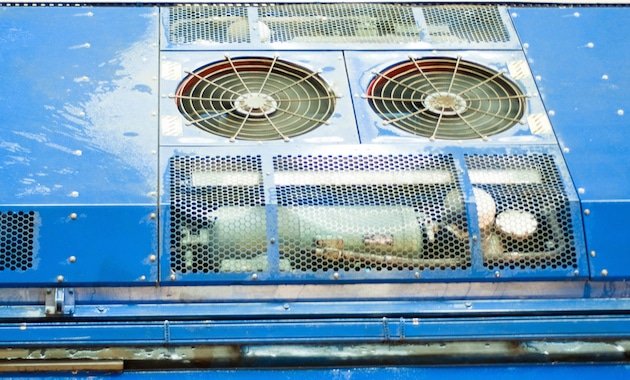
The idea of going on vacation is probably one of the most appealing concepts we have as human beings. It can mean anything from jet setting off to a sunny beach and sipping tropical drinks to trekking through remote and exotic jungles. While there’s a type of travel to entice virtually every personality, there are also many travel practices that aren’t as attractive to the planet as a whole. Tourists across the globe have earned reputations for being wasteful and even harming the locations they set out to experience and enjoy.
Fortunately, more people have been taking notice of tourism’s impact on the environment, which the United Nations World Tourism Organization has recently found to be quite significant as the tourism industry is responsible for approximately 5% of global climate change. Much of this change stems from high amounts of carbon and greenhouse emissions such as CO2, methane, nitrous oxide and F-gases. Ironically, many of these emissions are also produced by tourists in an effort to visit sites that are negatively affected by the climate changing impact of emissions. These sites would include – but are not limited to — ski resorts, rainforests, low-lying islands and arctic and Antarctic glaciers.
Clearly the most effective means of stopping tourism’s effect on climate change would be to stop traveling all together; however, even making a few small changes to your travel practices can have a large impact on the amount of emissions produced during your trip. To get started on ways to improve your responsible travel, you can begin with this list of common travel practices that are detrimental for the environment, but easily changeable.

Photo courtesy of bigbirdz and Flickr
1) Taking That Cheap Flight With Three Layovers
It’s easy to understand why one would want to save money and earn more miles on a flight that will detour you through a few extra cities en route to your destination. While it’s easy to see that a longer flight will produce more emissions, the real energy drain actually stems from the extra take off and landing cycles. According to the Intergovernmental Panel on Climate Change, international flights use about twice as much fuel during the landing/takeoff cycle as they during their cruising time. This means that choosing direct flights won’t just save you the hassle being stuck in an airport overnight on a layover, it can help to drastically cut down the total emissions of a trip.
To take things a step further, you can choose to forgo air travel altogether in favor of a different mode of transportation. The Economist found that as a double-decker A380 has as much power as 3,500 family cars, it produces emissions equivalent to that of six cars to transport each of its passengers. Even with this in mind, depending on the distance of the trip and the amount of people traveling, different modes of transportation will be better or worse for the environment. For example, a train journey of 100 miles would be a better option than flying economy for a solo traveler; however, if a family of four was traveling over 1,000 miles, a train journey would actually be worse for the environment than flying economy. For a vacation traveler carbon guide, see the Union of Concerned Scientists’ Getting There Greener guide.
<img class=”size-full wp-image-37031″ alt=”Photo courtesy of Calvin Chu and Flickr” src=”http://epicureandculture.com/wp-content/uploads/2014/06/Calvin-Chu-and-Flickr.jpg” width=”630″ height=”461″ /> Photo courtesy of Calvin Chu and Flickr
2) Plastic Bagging Souvenir Purchases
It can be easy to be tempted to bring back a reminder of your perfect trip, along with souvenirs for your family and friends. But if you’re going to be buying mementos remember to bring a reusable cotton totes to avoid using plastic bags.
To make your shopping even more sustainable, look for locally-made goods. Choosing local purchases supports the local economy, providing income for the residents of the region you’re visiting instead of an international corporation. Purchases like this not only benefit the shopkeeper directly, they create a multiplier effect for the entire community as once local businesses begin earning more money, they in turn spend more money in the community to further develop the business. If money is instead spent at an internationally owned company, leakage is created, as the revenue will be “leaked” from the country and back to the corporation’s headquarters. The United Nations Environment Programme has quoted this is an especially large issue in places like Thailand and the Caribbean, where 70% and 80% of money spent by tourists in these locations respectively ended up leaving the area.

Photo courtesy of Alpha and Flickr
3) Eating Like You Would Back Home
While being in a new destination may leave some travelers craving the comforts of home, eating imported foods from international suppliers leads to the same type of leakage as buying souvenirs from international suppliers. In addition, carbon emissions produced from importing food can add up quickly. In 2005, the Natural Resources Defense Council found that the import of fruits, nuts and vegetables into California alone produced over 70,000 tons of CO2 emissions — the equivalent of 12,000 cars on the road.
Eating local not only benefits the planet, it’s also a great way to experience a destination’s culture. A trip to Singapore wouldn’t be complete without sampling some local chilli crab or durian (a large pungent and delicious fruit), just as a trip to Peru wouldn’t be the same without sipping some coca tea or pisco (a grape brandy).
<img class=”size-full wp-image-37032″ alt=”Photo courtesy of Hotel Der Oeschberghof and Flickr” src=”http://epicureandculture.com/wp-content/uploads/2014/06/Hotel-Der-Oeschberghof-and-Flickr.jpg” width=”630″ height=”420″ /> Photo courtesy of Hotel Der Oeschberghof and Flickr
4) Getting Daily Housekeeping At Your Hotel
After a long day exploring the sights, it can be nice to come back to a clean hotel room to relax. That being said, this doesn’t have to mean you need all of your sheets and towels washed every day. According to the Carbon Fund, 16.8 kilograms (about 37 pounds) of CO2 emissions are produced per person per night in budget to midrange hotels and 33.4kg (about 73 pounds) in upscale hotels.
Fortunately, many hotels are realizing the impact they’re having on the environment and are now offering green programs for guests, with options like allowing guests to forgo daily linen washing. Since introducing these green options, JD Power and Associates completed a guest satisfaction study to find that two-thirds of guests chose to participate in the programs when given the option.
To take things a step further, you could skip the hotel experience altogether and opt for a local homestay or camping. Again, these options are not only better for the environment; they allow you to create a closer connection to your destination. Homestays can be especially beneficial as many locals that offer this option will be more than willing to show you around their town or city and expose you to lesser known sights and attractions.

Photo courtesy of michael_swan and Flickr
5) Cranking The Heat/AC
Similar to getting your towels and sheets changed on a daily basis, most people are more likely to crank the heat or AC while on vacation. While there might be a climatic difference between home and your destination — not to mention you’re not responsible for the resulting electric bill — resisting the urge to climate control can help significantly cut down emissions. Do your research before you leave and make sure to pack for the weather to be better adjusted to the new temperatures. If it will be particularly hot, you may even want to pack a small fan or misting bottle.
Another tip to remember is to turn off your heat or AC back home before you leave. If your house is going to be empty while your gone, there’s no reason to create emissions, and spend money climate controlling when it’s not necessary. Unplugging electronics is another great way to save energy.
How do you help to reduce your carbon footprint when traveling?
Leaf. Photo courtesy of Jeff Kubina.

Jessica Festa is the editor of the travel sites Jessie on a Journey (http://jessieonajourney.com) and Epicure & Culture (http://epicureandculture.com). Along with blogging at We Blog The World, her byline has appeared in publications like Huffington Post, Gadling, Fodor’s, Travel + Escape, Matador, Viator, The Culture-Ist and many others. After getting her BA/MA in Communication from the State University of New York at Albany, she realized she wasn’t really to stop backpacking and made travel her full time job. Some of her most memorable experiences include studying abroad in Sydney, teaching English in Thailand, doing orphanage work in Ghana, hiking her way through South America and traveling solo through Europe. She has a passion for backpacking, adventure, hiking, wine and getting off the beaten path.








